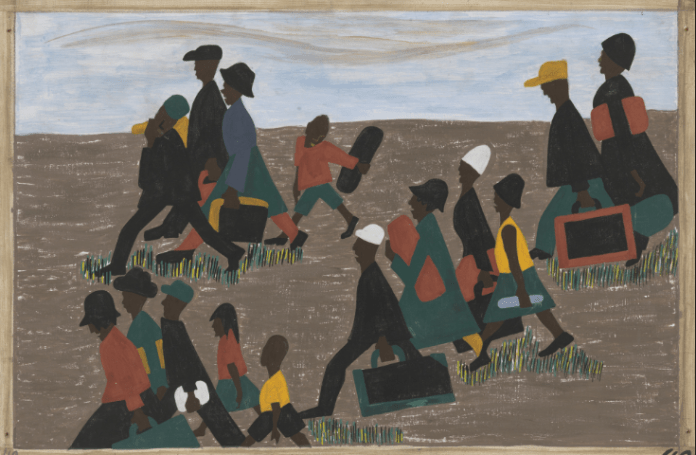Walking around the streets of Ermita in Manila, one could see the lengthy lines of people who aspire to work abroad as seafarers, domestic helpers, cooks, technical staff, and many others. One could also hear women in their 40s talking inside the jeepney about their requirements and instructions from their respective recruitment agencies. They are hopeful to gain better income abroad, albeit the dangers of persecution, discrimination, abuse, and torture at the hands of their employers and from foreign nationals who might inflict harm on migrants. Migrant work has been, for them, a solution to the government’s incapacity and lack of provision for better work opportunities here in the country.
On one occasion in Rome celebrating the 500 years of the coming of Christianity to the Philippines, the late Pope Francis acknowledged the contribution of Filipino Christians to the work of evangelism the world over. He called them “smugglers of the faith” because wherever they are led, they bring with them their faith and devotion. He encouraged them to preserve the “genetic disease” of Filipinos in bringing the faith and the good news to all the places where they are led through work opportunities.
Along with the desire for greener pastures that they believe can only be achieved through migrant work, Filipino Christians become bringers of the good news in foreign lands as they begin to take on various ministries in the churches abroad as choristers, cantors, choir directors, lectors, Sunday school teachers, marriage counselors, acolytes, and many other roles that aid missionaries from various denominations, especially in the Roman Catholic Church and other Protestant churches that are doing missionary work.
Reading the Gospel text in the eyes of migrant workers would come differently and more meaningfully in my case as someone who has experienced living abroad and working in an international ecumenical organization. Filipino Christians, in reality, come as a group, or some solo, but they always find a flock or community once they are abroad. They flock to churches on Sundays or on whatever appointed day for worship as they attend services, participate in the ministry, and join in the fellowship of the gathered community.
But behind the joys and the laughter of migrant workers and their eagerness to share their homegrown faith with the communities abroad are the countless struggles that they are facing every single day while working and living in diaspora. At the back of happy vlogs and selfies they project through social media are the painful stories and sacrifices they have made in order to provide a better life for their families left behind in the Philippines.
With Jesus’ instruction to the disciples of shaking the dust off their feet in protest for the towns or places that have rejected them, it would be impossible for migrant workers. They have contracts to fulfill, and they have to pay their debts to their recruitment agencies. They don’t have a choice but to complete their contracts, or else they will be faced with financial problems. Also, despite the difficulties and the ongoing discrimination, they have to comply and abide by the migrant laws that sometimes suppress and deny their rights as humans and as migrant workers.
With today’s migration policies in the United States of America under Donald Trump’s oppressive and dehumanizing regime and the unending narratives of rape, discrimination, abuse, and torture among migrants in Hong Kong, Singapore, the Middle East, and other parts of the globe where the migrant Filipinos flock for work opportunities.
With our Gospel reading this Sunday, we are challenged to look into the text with new eyes in the light of the experiences of migrant Filipinos who aspire for a better life for their families left behind here in the Philippines. We are encouraged to look into the risks and dangers of migration along with the joys and successes of Filipino Christians’ participation in the work of mission, aiding the churches to spread Christ’s love to other parts of the world. While it is tempting to glorify the participation of Filipino Christians who become accidental missionaries in other countries where they flock for work, we should also look closely at their struggles and fears and the underlying causes that forced them to choose migrant work rather than to stay with their families.
In the end, we must express our solidarity with the bearers of the faith, migrant Filipinos by providing spaces and opportunities in our churches and faith communities that provide support and enable growth for the migrants and their families. We must also influence lawmakers and law enforcement agencies to respond to the needs of migrants and their families through laws that empower and develop their professional, economic, and social aspects of their lives.
We are urged to also retell the narratives of struggles of the migrant workers and serve as advocates for migrant workers’ rights in the light of our Christian faith and action. Let us be bearers of good news to the struggling and the oppressed sectors, especially the migrant workers. Let us look into the Scripture texts with eyes that look into the realities of today so that we may be able to contribute to the liberation of the oppressed and the marginalized in the society.
Gospel reflection of Klein Fausto Emperado, Iglesia Filipina Independiente, July 6, 2025.
Balik-Tanaw is a group blog of the Promotion of Church People’s Response (PCPR). The Lectionary Gospel reflection is an invitation for meditation, contemplation, and action.









